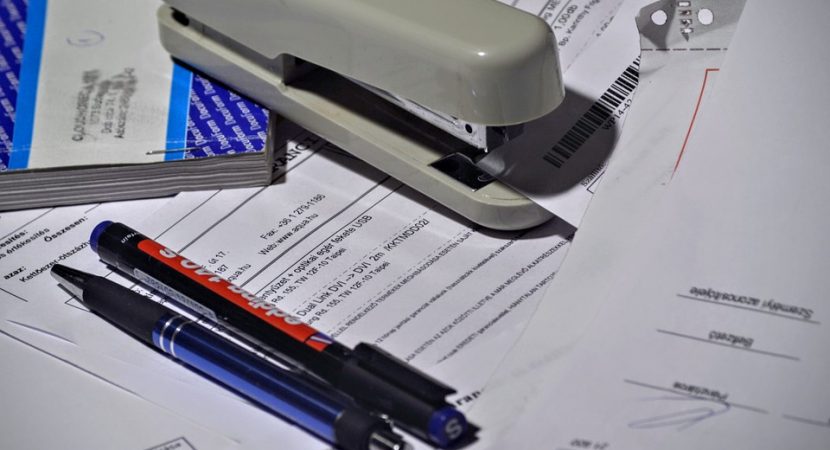Never make a move before you think in business. Never leap before you look. But, you may have more money in your business than you know.
When you need it, it’s yours, but you may not know how to get your hands on it or optimize your benefit.
What you need to know about cash flowCash flow is your business’s circulatory system. The business feeds on and alters the cash as it flows through the business just like blood changes as it passes through veins and arteries past organs and tissues. The business dies without cash, but owners can manage and modulate the flow to their advantage.
Australian Accounting Standards Board AASB 107 reads, “The economic decisions that are taken by users require an evaluation of the ability of an entity to generate cash and cash equivalents and the timing and certainty of their generation.”
Cash flow is important for undercapitalised small businesses which, in addition to paying their suppliers and employees, want to invest in their business growth. They have some accounting options:
- Allocate payment of tax liabilities. Busy small business owners tend to forget they have pending tax due dates. They don’t like paying taxes because taxes do not reinvest. But, they must be paid, so cash flow isn’t healthy if you haven’t budgeted funding for tax liabilities.
- Stay current with your bank obligations. Money is ready, available, and accessible. But, your business cannot afford too much debt. When it eats into your cash flow, it may starve the business borrowing cash from Peter to pay Paul.
- Pay payments at the end of their due period. If your payment is due within 30 days, for example, you delay payment until the date you can pay without penalty. Your cash flow benefits when you organize vendor and supplier bills so they get paid without losing the discount for early payment. It takes some juggling, but it strengthens the cash flow.
- Chase your debtors. Receivables do not get better with age, so you need the time and discipline to collect debts. Non-paying customers only get a ride on your cash flow, so your collection policy should not reward their delinquency.
You should also remember those accounts receivable are assets worth money to cash-short companies.
Thinking about suing for unpaid invoices?
Entrepreneur says it all: “The eager client. The persistent client. The difficult client. The know-it-all client. The cooperative client. There are countless types of clients an entrepreneur will encounter in his or her lifetime. But perhaps the most abhorrent client of all is the client who doesn’t pay when the bill becomes due — not to mention circumventing calls and not responding to emails. Unfortunately, these types of clients are almost unavoidable. So what legal options do you have to collect on a past due bill? One is to sue.”
Your business is vulnerable to unethical customers who see weakness in your size and financial depth. They assume, often correctly, that you cannot afford the expense and time required in a lawsuit. So, the best advice is to explore other options rather than suing.
Try these 6 things first
- Discipline collections. Calendar and follow collections. You can use emails, letters, and phone calls in sequence as the due date nears and in increments after the due date.
Disciplined collections pull most your payments forward to accelerate and refresh your cash flow. With a system on your end, you will bring a system to their end of the process. For those, who don’t get the message, you must have a penalty. For example, in many cases, the customer cannot afford to have their business cut off. So, if you have been clear about that option, you should exercise it.
- Finance the debt. With some legal advice, you can come up with a document that commits the debtor to make partial payments on schedule over several months.
You could benefit from the repayment as well as a modest interest rate. With financial and tax advice, you may accept some loss by negotiating a discounted payment to gain some return rather than none.
- Know who you are dealing with. You’d be surprised how many businesses don’t know who their clients are or how to reach them. A paint company with over 50 retail locations allowed store managers to extend credit to house painters.
Not until those credits approached 90 days or more overdue did the home office discover it had no track record on the customer. Every such business must process the transactions knowing the customer name, business name, address, phone, cellphone, tax I.D., driver’s license, credit card, banking reference, and more. Every transaction should involve a form explaining debtor obligations and business collection processes.
- Use collection agency. A collection agency takes things out of your hands and off your desk. It makes sense in some situations to outsource the task to a business devoted to collections.
Collection agencies offer efficiency because they have a working process in place. It’s in their interest and yours to get things done. They expedite the process by leveraging their reputation. They intimidate customers even when they are polite and cordial. Linking their collection with the customer’s credit reporting agencies threatens those individual and corporate customers. And, while there will be fees, they do not approach the legal fees involved in lawsuits
- Make a small claim. Small claims tribunals exist to settle such conflicts. State and Territory courts have small claims divisions that provide a simple debt recovery process.
The process is a relatively informal way to resolve claims between $2,000 and $25,000 “in respect of money, goods purchased or delivered, labour or a combination of these” (ARTS Law Center of Australia).
The tribunal expects two steps:
- Negotiate a settlement, or
- Obtain a judgment in your favour in court.
If the judgment is in your favour but you don’t recover the money owed, you can obtain a writ of execution, secure a garnishment, or force the debtor into bankruptcy.
- Leverage unpaid invoices. Unpaid invoices are assets. As such, you can leverage them to improve your cash flow.
What you do with Invoice Financing Australia, for example, is sell your outstanding invoices as an asset at a discounted rate. You can choose from options:
- Spot Invoice Financing: You choose a single invoice or batch of invoices to sell for cash.
- Partial Ledger Invoice Financing: You sell the most profitable invoices for a higher return than selling the worst debtors.
- All of Turnover Financing: A factoring company provides a credit facility to the full value of your outstanding invoices.
Thinking about suing for unpaid invoices?
Try these six things first and you can save the stress, time, and cost of litigation. And, in most cases, you can improve your cash flow to stablise and grow your business.


